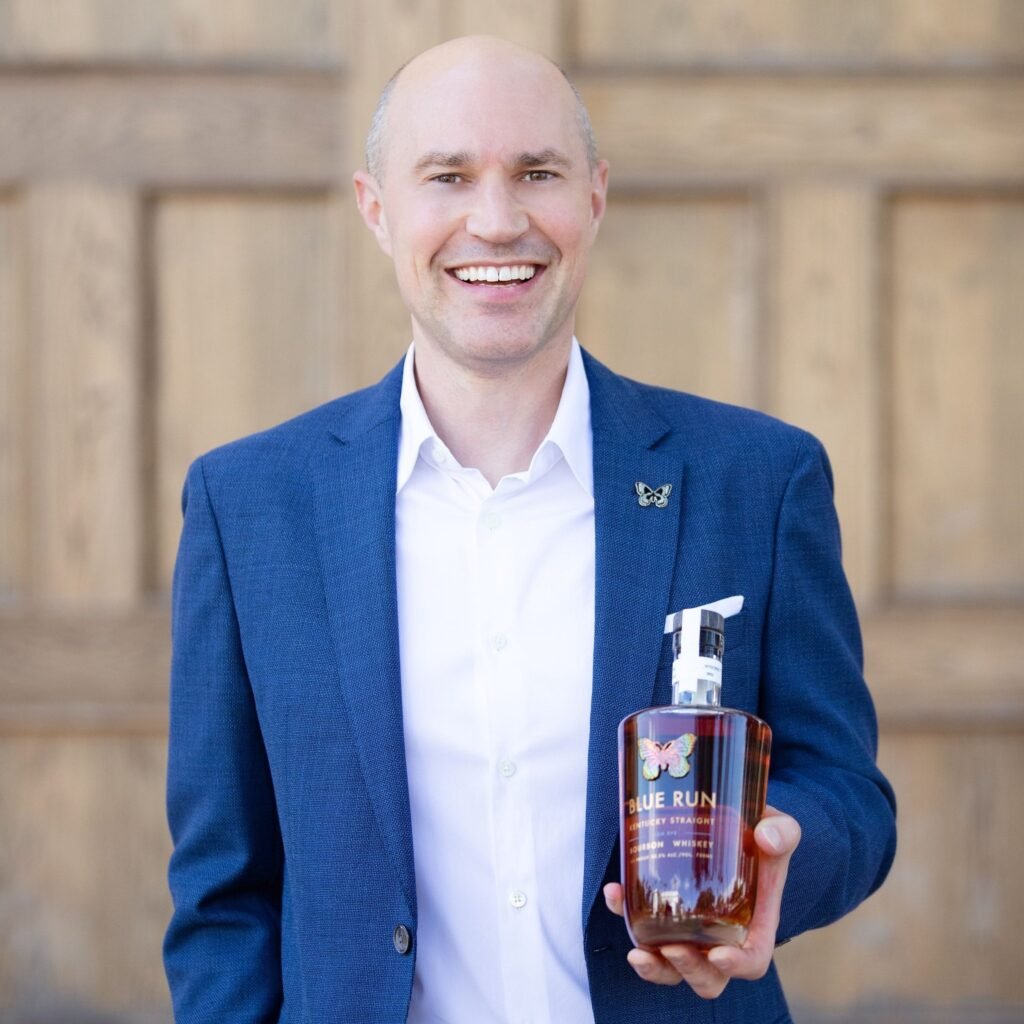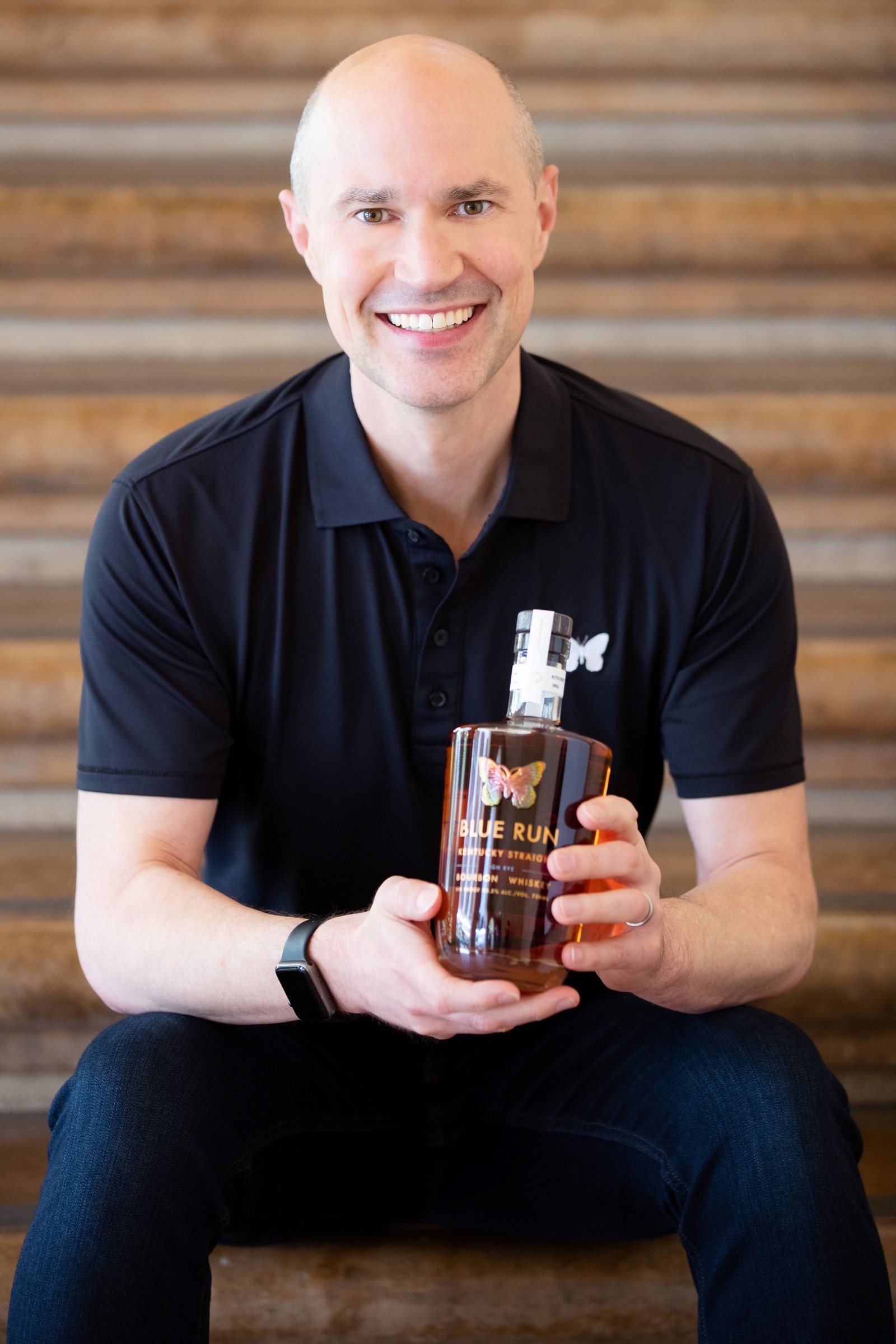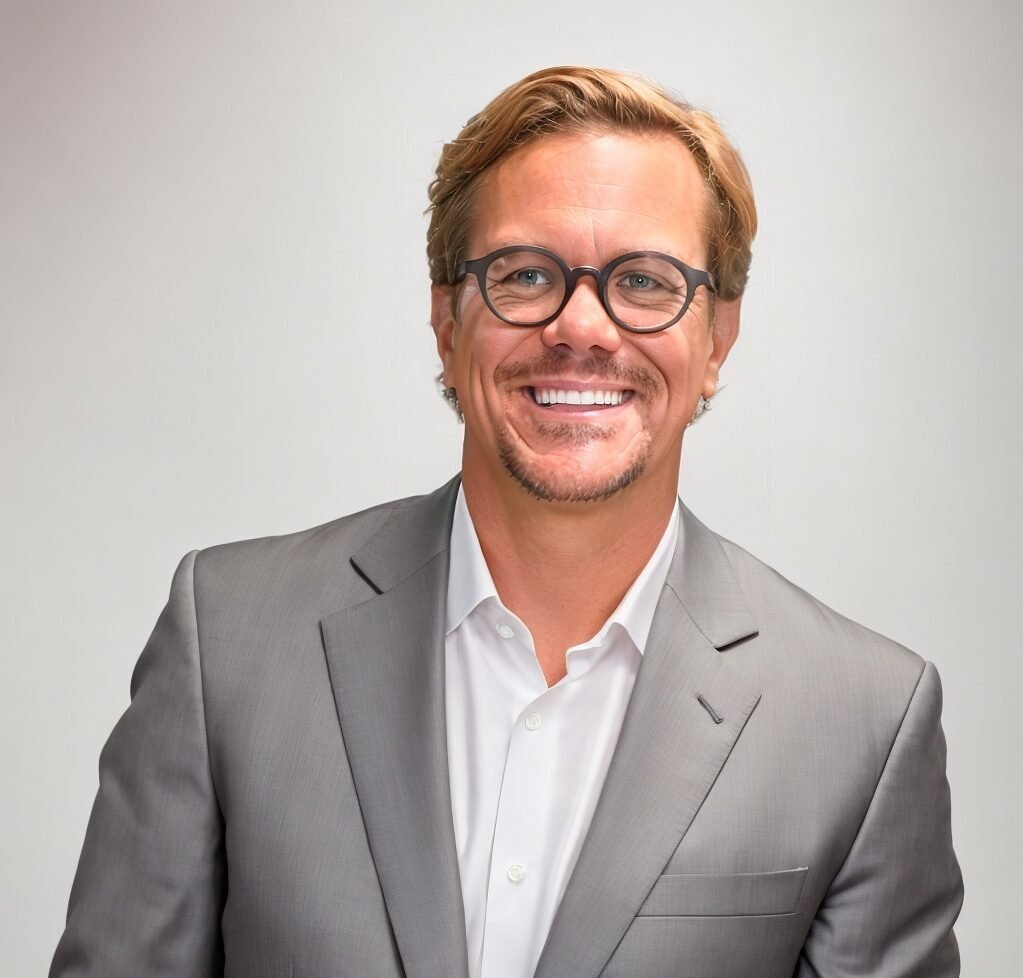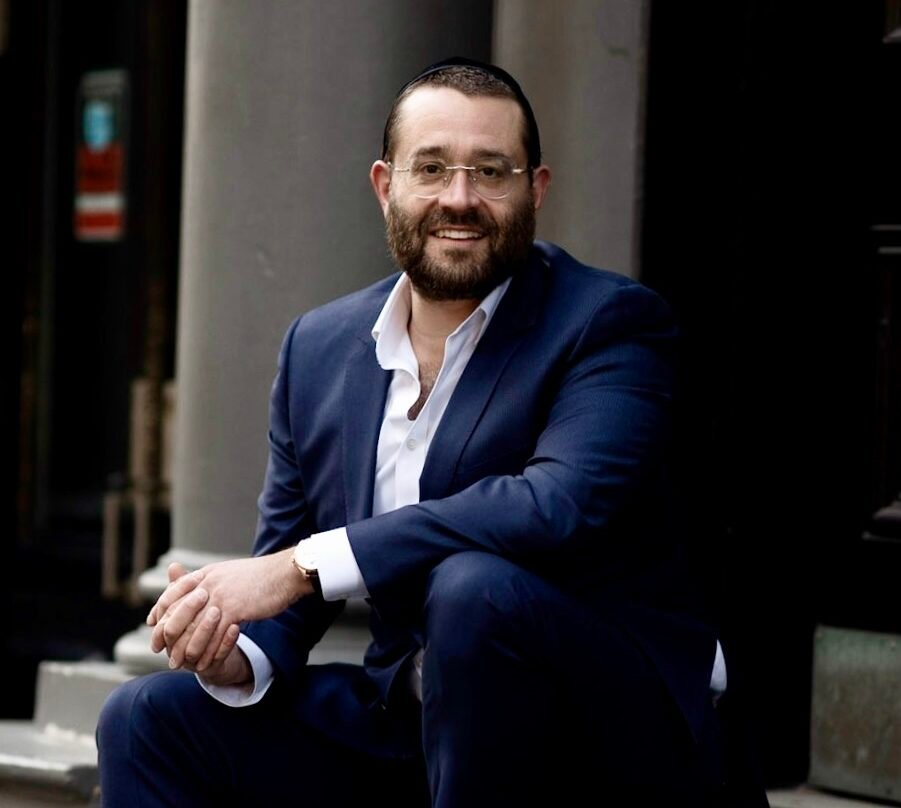I recently went one-on-one with Mike Montgomery. Mike founded Blue Run Spirits and sold the company to Molson Coors three years later. Mike is currently a Vice President at Coors Spirit Co. and was previously Governor Gavin Newsom’s campaign finance director.
Adam: Thanks again for taking the time to share your advice. First things first, though, I am sure readers would love to learn more about you. How did you get here? What experiences, failures, setbacks, or challenges have been most instrumental to your growth?
Mike: I don’t think the story of someone with a long history in politics and public affairs, with no experience in the spirits industry (other than loving the product), transforming the world of bourbon is a story that’s been written in the last century – if ever. It’s as unlikely a story as you can imagine, but I am grateful it did, in the middle of a pandemic no less. I have a unique background that’s applicable to a number of different industries and I was looking for ways to become more entrepreneurial. Despite having founded a number of businesses, I hadn’t found what I’d call my true passion. I ran campaigns, raised money for candidates at the highest levels of government, devised strategies, and advised clients in a range of businesses, from real estate and tech to labor unions and funds. It was a very happy discovery to find that many of the skills I gleaned from my time in the political and business arena were directly applicable to founding and running a bourbon company, which helped me create a truly unique brand.
Relentlessness and creativity are two of the key attributes and differentiators that I think really helped shape the company. The other is vision. If you don’t have an inspiring vision and then surround yourself with people who buy into that vision and, in turn, have the ability to actuate the vision, then you haven’t necessarily found your personal platform for success. I also believe that painting inside the lines, while safe, doesn’t allow for big ideas to develop. I often talk about the definition of insanity, in that if we continue to copy what’s already been done, we shouldn’t expect a different – or better – outcome. You hear this all the time: “I want my company to be like XYZ.” In fact, you don’t, because that has already been done. To succeed, you have to have a differentiating vision that inspires others. I’ve had some false starts and failures along the way, and I think each time I could attribute it to the vision not being transformational.
Adam: How did you come up with your business idea? What advice do you have for others on how to come up with great ideas?
Mike: I’d call it a series of epiphanies. Initially, I didn’t think bourbon was an industry ripe for disruption, and certainly not by an outsider living in California, of all places. Every single time I dismissed the idea, it came roaring back even stronger. In hindsight, I was pushing myself to dig deeper, to be more creative, and to twist the norms to create something never seen before. With Blue Run, I wasn’t even thinking about whiskey being an industry that was open to outsiders. One day, a friend called and said he was offered some barrels of bourbon and asked what I thought we should do. My first response was that we should drink them because a few barrels isn’t a business. But I just couldn’t get the idea out of my head. Over the course of a few months, my mind changed. The most important moment in the evolution of the idea before launch was driving past a Supreme shoe store on a rainy morning in Los Angeles. There must have been 500 people waiting in line. I’m naturally curious, so I parked and started talking to people, asking them what they were waiting for. Every single person told me that it was Thursday and that’s launch day at Supreme. What did they want? Anything they could get their hands on. This is sneaker culture and this epiphany led me to call an acquaintance who leads lifestyle design at NIKE and we discussed how to apply this approach to whiskey. It’s hard to get 500 people to show up anywhere in Los Angeles, particularly when it’s raining, so there must have been other factors at play, like social media, which led me to a series of long conversations with someone who spent time at Facebook during its formative years. Each revelation led me to the next. I didn’t push or force the creation or existence of Blue Run Spirits. It evolved with each interaction or observation. I think the best skill I brought to the table was an ability to apply successful elements that drove demand from other industries and apply them to a bourbon industry that a lot might consider to be rather dusty. In this instance, I was borrowing inspiration from successful brands, rather than trying to simply copy them. When applying it to a different industry, it was a game changer.
Most people say they do their best thinking in the shower, but mine comes when I least expect it. It’s impossible to schedule creative time and I’ve been around people who force it and it’ll never work that way, at least for me. I find that my creative juices flow the most when I’m active – walking, practicing yoga, driving, or talking to people in completely different industries who are passionate about what they do.
Adam: How did you know your business idea was worth pursuing? What advice do you have on how to best test a business idea?
Mike: With Blue Run, I had a feeling that was similar to the first time I laid eyes on the woman who would one day be my wife; I just knew. I quickly started shifting my share of mind toward this idea; I talked about it constantly, and I woke up in the middle of the night to write down ideas that were too good to let slip away. It’s similar to falling in love. The excitement, the passion, the near-singular focus. For me, it was abundantly clear that this was the thing.
In this industry, given the expense of the inputs (barrels, bottles, labels, taxes, etc.) it’s too expensive to start small and truly beta test if you’re aiming for the sky, but in many other industries that is the likely, preferred route. But for me, if you think small, you’ll bring that into existence. I know this isn’t for everyone. Swinging for the fences can mean you’ll strike out, but when you just KNOW you’re onto something big, dipping a toe is simply an artificial limitation based more upon fear than belief and confidence.
Adam: What are the key steps you have taken to grow your business? What advice do you have for others on how to take their businesses to the next level?
In order to build a movement, one must engage the consumer base in extraordinary ways. I believe in the concept of a consumer funnel that takes consumers, morphs them into friends and then, finally, into family. Thanks to Blue Run, I’ve got family scattered across the entire country and I root for them just as much as they root for me. In many instances, we haven’t even met in person but I know I’m one of their biggest fans. I cheer for their promotions, their spouses and kids, and their triumphs. I’m also there when times aren’t as good. This is what it’s all about. This belief of mine is applicable in almost any line of business, but it’s definitely most applicable in CPG and electoral politics. In my case, much of this was nurtured through social media, where I could have a personal dialogue with those buying my product.
In order to take a business to the next level, you’ve got to accept risk but have an undeniable belief in the desired outcome. If you aren’t all the way in, you’re out. There’s no two ways about it. In terms of scaling, it’s hard to scale a business without resources, so if it means diluting equity interests to supercharge your startup, it’s a straightforward choice.
Adam: What are your best sales and marketing tips?
Mike: On the sales side, assemble a group of assassins. You want your team to treat every interaction with buyers as if it’s their last, but you don’t want them to sound desperate. Hire a great team, hire great managers and empower them. If you don’t have sales, you’ve got nothing. In terms of marketing, this is where you’ve got to embrace your creative side. If it’s been done in your industry before, don’t do it again. If you’re speaking at consumers instead of with consumers, you’re doing it wrong.
Adam: In your experience, what are the defining qualities of an effective leader? How can leaders and aspiring leaders take their leadership skills to the next level?
Mike: There are many different types of leaders and varied approaches to leadership, but I try to lead in a way that is inclusive, where members of the team have the ability to provide meaningful input, which is how ideas, processes, and decisions are sharpened. I believe that many of the answers aren’t available in a textbook and can’t be learned in a b-school classroom, especially strategy, street smarts and empathy. The way to supercharge your leadership abilities is to surround yourself with a peer group from a variety of different industries who share with each other and help each other approach and solve challenges. Find some mentors. I’m a better leader because I’ve borrowed from people I’ve worked with along the way and I have a stable of advisors willing to help me work through challenges. You can learn something from everyone, even the people you haven’t enjoyed working with or who weren’t particularly good leaders. Employ everything at the right time and lead with grace.
Adam: What is your best advice on building, leading, and managing teams?
Mike: Success is built or lost on the strength of partnerships. If a partnership fails, the business will ultimately fail. Spend time getting to know your cofounders and their families. What makes them tick? Build a team of people who challenge you, but aren’t thirsty for power or greed, which are viruses that can topple businesses before they get off the ground. Find folks who complement your own skills, not mirror them. If you build a team that’s just like you in numerous ways – they think like you, they react like you, they are competent at the same tasks as you, then you’ve just cloned yourself. That’s not the way to build a team. That’s how you get blindsided along the way because there is singularity in thought. The way to build a team is to choose people with complementary skillsets. When I built the Blue Run team, I added Devon McKinney, who is a talented designer, a visionary marketer and the arbiter of cool. I added Tim Sparapani, who has a background in social media and the law. Jesse McKnight was critical because he brought valuable relationships in Kentucky. And Andy Brown was skilled at operations and supply chain management. If I had it to do over again I wouldn’t. I’d choose this exact same team because we understood the goal, we worked well together, we leveraged creative tension appropriately, and we pushed each other to eschew good and aim for great. I’m incredibly proud of the founding team I built and we remain close today, post our acquisition.
Managing a team is an ever-evolving process. I don’t think people are born managers, but they can develop management skills. Some lead through fear, others lead through friendship and empathy, but I don’t believe there’s a right or wrong, though the fear-based approach leads to constant turnover and the friendship/empathy route leads to apathy. There’s got to be middle ground whereby you can push and challenge your team, but you also have the ability to be a human being and understand who people are, what makes them tick, guide and coach them to find their path. People are inherently excited to be a part of a process if leadership brings them along for the ride.
Adam: What are your three best tips applicable to entrepreneurs, executives, and civic leaders?
Mike:
-
Engage your audience and treat them like family.
-
Don’t forget that you’ve got a life (family, friends, interests) outside of your business.
-
Don’t take “no” as a death knell – it’s actually a door opener.
Adam: What is the single best piece of advice you have ever received?
Mike: It’s incredibly hard to narrow it down to a singular piece of advice, but I think it was someone who told me to “Dream bigger than everyone else and you can’t lose.” It’s a common belief that at the point at which you commit to something, the world will conspire to assist you. I believe that is true and think the commitment comes from the true belief in yourself, your dream, and your vision. I’ve been lucky to surround myself with mentors at every step of my career. There have been so many people who have dropped so much knowledge and wisdom on me throughout the years and I’ve picked up so much along the way. Ultimately, I need to know who I am and stay true to that no matter what.
Adam: Is there anything else you would like to share?
Mike: I’m motivated by those who have told me something is impossible, that I can’t succeed, or that I’ll fail or fall on my face. Yes, I keep a list of these people and reference it frequently. But I don’t do so to exact revenge in the future. I do so because the list serves as a constant reminder that in order to do something big, I’ve got to constantly prove myself and rise to the occasion. If I stay true to my vision, I always believe the doubters will naturally morph into believers.









